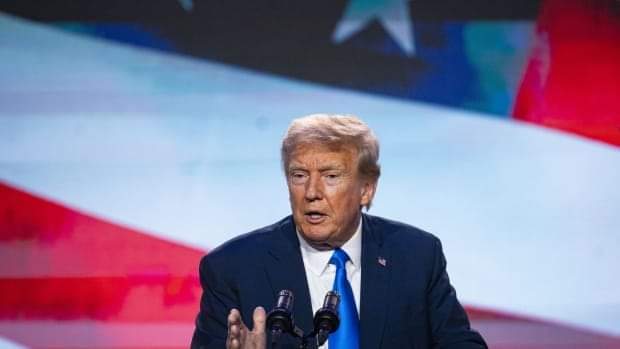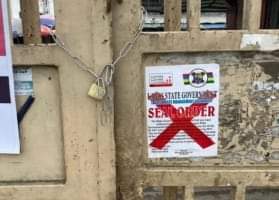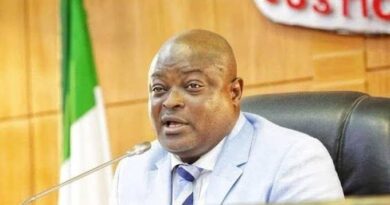US court strikes out case to stop Trump from contesting presidential election because of white house riot after his defeat
Donald Trump won another fight to stay on 2024 election ballots, with a Colorado judge ruling that although the former president engaged in an “insurrection,” he is still eligible to run for another term in the White House.
In a 102-page opinion, Denver District Court Judge Sarah Wallace found that the voters who contested Trump’s spot on state ballots proved that he incited the Jan. 6, 2021, attack on the US Capitol. But she concluded the US Constitution’s ban on insurrectionists holding public office wasn’t intended to cover an official who had taken the presidential oath of office and was running again for the same post.
Wallace wrote in Friday’s ruling that part of her decision was a “reluctance to embrace an interpretation which would disqualify a presidential candidate without a clear, unmistakable indication” that the 19th-century drafters of the constitutional language at issue intended that outcome.
The Colorado case is the first constitutional challenge to Trump’s 2024 run to go through a full trial. Lawyers for the voters who brought the lawsuit said they will appeal to the Colorado Supreme Court. Whoever loses the next round could petition the US Supreme Court.
“The court’s decision affirms what our clients alleged in this lawsuit: that Donald Trump engaged in insurrection based on his role in January 6th,” Noah Bookbinder, president of Citizens for Responsibility and Ethics in Washington, an advocacy group involved in bringing the case, said in a statement. “Today was not the end of this effort, but another step along the way.”
Trump spokesperson Steven Cheung called Wallace’s decision “another nail in the coffin of the un-American ballot challenges.”
“These cases represent the most cynical and blatant political attempts to interfere with the upcoming presidential election by desperate Democrats,” Cheung said in a statement.
Wallace’s ruling follows recent orders in Minnesota and in Michigan that would allow Trump to appear on primary ballots in those states as well.
Judges and legal experts have long expressed concern that state-by-state challenges could result in a constitutional crisis if Trump is blocked from presidential ballots in some states but allowed to appear in others.
Trump has faced dozens of lawsuits across the country this year claiming he’s ineligible for another term in the White House under Section 3 of the 14th Amendment. The post-Civil War era provision states that a person who took an oath to support the Constitution and then “engaged in insurrection” is ineligible to hold office again.
Although each state has its own election laws, the 14th Amendment challenges all feature the same overarching claim: That Trump’s role in trying to overturn the results of the 2020 presidential election leading up to the Capitol attack disqualifies him from being president again.
Wallace found that the First Amendment’s free-speech protections didn’t shield Trump because he “acted with the specific intent to incite political violence and direct it at the Capitol with the purpose of disrupting the electoral certification.”
“Trump cultivated a culture that embraced political violence through his consistent endorsement of the same,” she wrote.
But her decision turned on how Section 3 defined the government officials who could be ineligible to serve if they engaged in insurrection and what offices they could be barred from holding. The section names specific positions — such as a member of Congress or presidential elector — and has catch-all language referring to “any office, civil or military, under the United States” and “officer of the United States.”
The judge wrote that the historical record and other parts of the Constitution supported Trump’s position that Section 3’s drafters couldn’t have meant for general references to a government office or US officer to apply to the presidency or a president.
She also credited Trump’s argument that differences in the oaths that a president takes — to “preserve, protect and defend” the Constitution — compared to lower-level executive officers — to “support” the Constitution — was important. Section 3 incorporated the language of the latter, she noted.
“Whether this omission was intentional, or an oversight is not for this court to decide,” Wallace wrote. “It may very well have been an oversight because to the court’s knowledge Trump is the first president of the United States who had not previously taken an oath of office.”
A number of lawsuits were dismissed early on after judges found challengers lacked standing to sue or had brought claims in the wrong type of court. But the cases in Colorado, Michigan and Minnesota reached stages where judges were in a position to rule on at least some of the core legal questions.
The Minnesota Supreme Court found that the constitutional eligibility issue wasn’t relevant to the primary contest, when state election officials play a largely administrative role helping political parties choose a nominee. The state justices put off ruling on Trump’s eligibility in the general election, however, leaving the door open for the voters who sued to try again next year.
A Michigan Court of Claims judge issued a more sweeping decision in Trump’s favor. That judge concluded that the fight over whether Section 3 bars Trump from another term in the White House was for Congress, not the courts, to resolve. The Michigan voters who sued have appealed.
Wallace presided over a weeks-long trial, hearing testimony from dueling experts on whether courts and state election officials can enforce Section 3, whether the insurrectionist ban can apply to a former president running for reelection, whether Jan. 6 was an “insurrection,” and, if it was, whether Trump “engaged” in it.
The judge also heard from police officers and lawmakers who were at the Capitol during the Jan. 6 attack, a Colorado state election official, a top lawyer for the now-disbanded congressional committee that investigated the 2020 election, and several of Trump’s current and former advisers and supporters.




